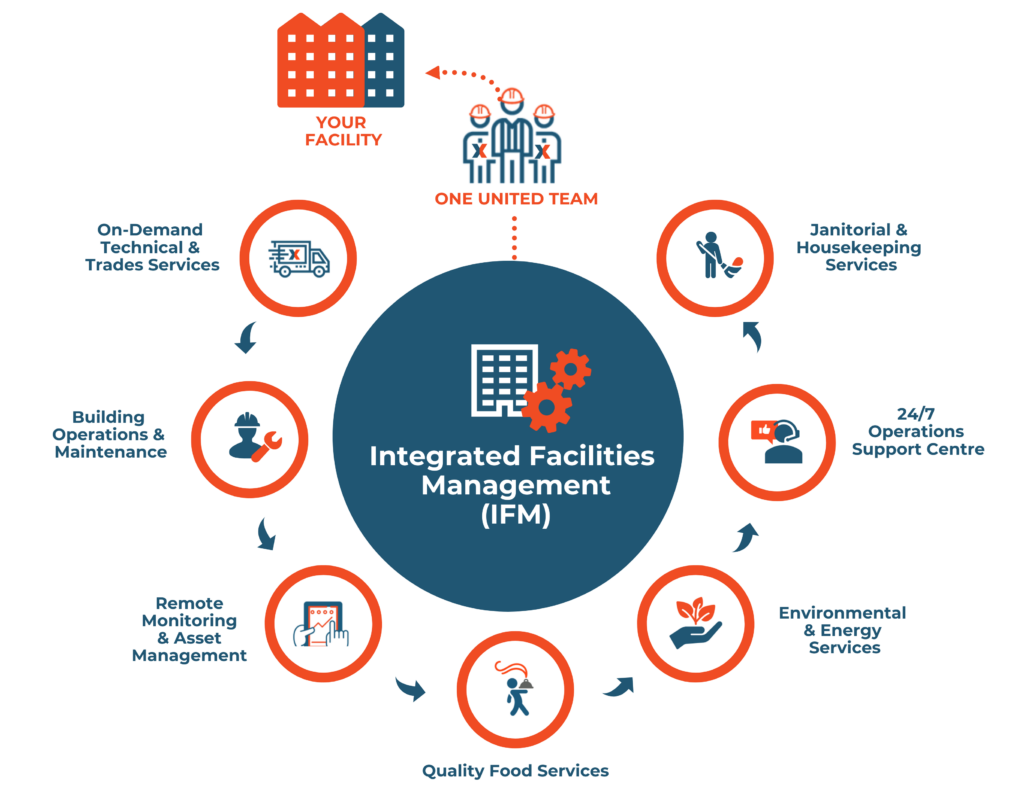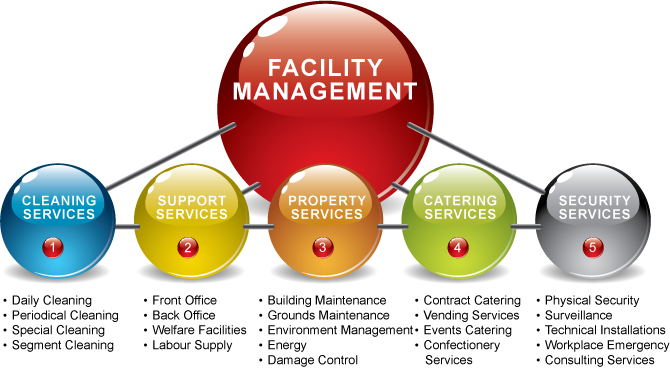Make Best Use Of Efficiency and Security: Ideal Practices in Center Administration
In today's rapidly progressing landscape, maximizing effectiveness and security in center management has actually become an essential emphasis for organizations aiming to boost operational performance. By incorporating smart innovation, prioritizing maintenance protocols, and promoting a culture of security, center supervisors can dramatically enhance both performance and compliance. The difficulty lies in properly implementing these techniques while navigating the complexities of modern-day work environments. What particular strategies can be utilized to make sure that these efforts not only exist side-by-side but additionally strengthen one another in a lasting manner?
Embrace Smart Technology
Applying wise sensing units and automation systems enables accurate monitoring of ecological conditions, tenancy levels, and devices efficiency. This data-driven technique not only notifies decision-making but likewise sustains predictive upkeep, reducing downtime and expanding asset life. In addition, smart innovation enhances user experience by developing adaptive settings that react to the needs of passengers.
Incorporating wise platforms likewise promotes sustainability campaigns, such as energy-efficient lighting and HVAC systems, adding to lowered carbon footprints. By embracing these technologies, facility managers can ensure that their operations continue to be competitive, resistant, and aligned with modern sustainability goals. Eventually, the shift towards clever technology represents a transformative step in redefining center monitoring for an extra lasting and reliable future.
Prioritize Normal Upkeep
Normal upkeep is essential for making sure the durability and performance of center procedures. A well-structured upkeep program not just prolongs the life of tools and framework yet additionally lowers the chance of unanticipated failings that can interrupt procedures. By prioritizing routine upkeep, facility managers can identify potential issues early, permitting prompt treatments that decrease pricey repair services and downtime.
Developing a routine upkeep timetable is essential. This should include regular examinations, maintenance, and needed repair services for all devices, heating and cooling systems, plumbing, and electric systems. Making use of an electronic maintenance management system (CMMS) can simplify this procedure, offering tracking and signals for upcoming upkeep jobs.
Furthermore, cultivating a culture of accountability among team improves the effectiveness of upkeep initiatives. Training employees to identify and report maintenance concerns can result in proactive monitoring instead of responsive feedbacks. Furthermore, documenting upkeep tasks guarantees compliance with safety and security guidelines and supplies important understandings for future preparation.
Implement Security Training Programs
An extensive safety training program is vital for cultivating a secure workplace in any center. Facility Management. Such programs furnish workers with the knowledge and abilities essential to recognize dangers, apply safety methods, and respond effectively in emergency situations. By prioritizing security training, organizations can considerably reduce the danger of accidents and injuries, therefore boosting total efficiency
To implement an effective safety and security training program, it is vital to tailor the web content to the specific demands of the center and its procedures. This consists of carrying out a thorough risk analysis to identify possible risks one-of-a-kind to the workplace. Training should include a variety of subjects such as correct devices usage, emergency evacuation treatments, and initial help methods.
Additionally, it is crucial to involve staff members actively during training sessions. Making use of real-life circumstances and hands-on demonstrations can boost understanding and retention of safety and security methods. Normal refresher training courses must additionally be set up to maintain safety understanding at the forefront.
Optimize Room Utilization
Reliable space usage is a vital element of center administration that straight impacts operational effectiveness and cost-effectiveness. Organizations typically fight with underutilized or jammed rooms, resulting in inefficiencies and boosted costs. To enhance room usage, facility managers should conduct routine analyses to identify how areas are presently being made use of and where renovations can be made.
Applying flexible work space styles, such as open office formats or modular furnishings, can dramatically enhance adaptability to altering demands. Additionally, leveraging innovation, such as space monitoring software program, Facility Management can provide beneficial understandings into occupancy patterns and help identify underused locations.

Establish Clear Communication Networks
Maximizing room use usually exposes the need for durable interaction techniques within a facility. Clear interaction networks are vital for assisting in efficient collaboration among team, maintenance groups, and management. By developing these networks, center managers can make certain that details streams perfectly pertaining more information to room usage, functional modifications, and safety and security procedures.
Implementing a multi-faceted interaction strategy-- integrating electronic systems, such as emails and group collaboration tools, with face-to-face interactions-- can dramatically improve engagement and details dissemination. Routine meetings should be arranged to go over recurring tasks, address problems, and share updates. Furthermore, developing a centralized info center, such as an intranet, enables staff members to gain access to essential records and statements conveniently.
In addition, feedback mechanisms are necessary to assess the efficiency of interaction approaches. Urging team to share their understandings can cause improvements and foster a society of visibility. Training programs focused on communication skills can additionally encourage staff members to communicate info clearly and properly.
Inevitably, establishing clear communication networks not only optimizes effectiveness but additionally improves safety by making certain that everybody is informed and straightened with the facility's functional goals.

Conclusion
In conclusion, the combination of clever modern technology, regular maintenance, detailed safety and security training, maximized space use, and efficient interaction channels collectively improves efficiency and safety and security in center monitoring. These finest methods serve as vital elements for efficient facility management.
In today's rapidly developing landscape, optimizing performance and safety in facility management has come to be an important emphasis for go to my blog companies aiming to improve functional performance. By integrating smart technology, prioritizing maintenance methods, and cultivating a society of safety and security, center managers can substantially enhance both efficiency and compliance.To implement an effective safety and security training program, it is critical to tailor the web content to the certain needs of the center and its operations. By establishing these networks, facility supervisors can make certain that info flows effortlessly concerning space use, functional changes, and safety methods.
Comments on “Comprehending the Necessary Concepts of Facility Management for Modern Companies”